Preventing Lower Leg Pain After Running: Tips and Techniques
Introduction
In the fitness industry, the bench press exercise stands out as one of the most popular exercises, celebrated for its effectiveness in building upper body strength. However, it’s also notorious for causing shoulder injuries if not performed with proper technique. This blog dives deep into the nuances of preventing and fixing shoulder pain after bench press, spotlighting the anatomy involved, common causes of discomfort, and strategies for maintaining shoulder health.
Understanding Shoulder Pain In Bench Press
Anatomy Of The Shoulder
The shoulder, a marvel of human anatomy, includes the shoulder socket that cradles the upper arm bone, surrounded by the rotator cuff muscles. These muscles are key to the shoulder’s movement and stability, particularly during upper-body exercises like the bench press. However, the intensity of bench press exercises, especially with heavy weights, places significant strain on these structures, increasing the risk of rotator cuff injury and other shoulder injuries.
Common Causes Of Shoulder Pain During And After Bench Pressing
Shoulder discomfort and injuries from the bench press, even front shoulder pain after bench press, often stem from a range of factors:
- Poor Form: Incorrect form, including improper shoulder position and grip, can lead to overuse injuries. A narrow grip, for instance, can strain the shoulder, leading to conditions like shoulder impingement or rotator cuff tear.
- Overuse: Repetitive motions and overhead motions without adequate time for muscles to recover can exacerbate shoulder pain, turning acute discomfort into persistent shoulder pain.
- Imbalance In Muscle Strength: Focusing solely on heavy weights in bench press and neglecting complementary exercises can create imbalances, making the shoulder more susceptible to injuries such as rotator cuff tear and other common shoulder injuries.
Preventative Measures

Proper Warm-Up
Warming up plays a pivotal role in prepping the muscles and joints, particularly before lifting heavier weights. It not only boosts performance but significantly lowers the risk of injury by giving the muscles time to adjust to the upcoming physical stress.
Examples Of Effective Warm-Up Exercises
Incorporate mobility exercises and rotator cuff exercises into your warm-up routine to enhance shoulder stability and prevent pain in shoulder after bench press. Exercises like internal rotations, shoulder external rotations, and lateral raises can specifically target the rotator cuff muscles, preparing them for the load during bench press exercises.
Correct Bench Press Technique
Achieving the proper bench press form is fundamental to safeguarding the shoulders. The starting position should see the feet planted firmly on the ground, a tight grip on the bar, and the shoulder blades retracted to reduce stress on the shoulder socket.
- Entire Movement: Throughout the entire movement, maintain a focus on keeping the shoulder in a position that minimizes risk. Incorrect form or bad form, such as an improper grip or poor technique, can lead to immediate sharp pain or long-term issues.
- Weight Considerations: While the allure of lifting heavier weights is strong, starting with a lighter weight and gradually increasing as your form improves can prevent overuse injuries and ensure the longevity of your shoulder health.
Balanced Training Program
To counteract the risk of bench press shoulder pain, incorporating a variety of chest exercises, rotator cuff exercises, and exercises that target the posterior shoulder, such as rear deltoid and posterior deltoid exercises, is essential. This approach ensures a balanced development of muscle strength around the shoulder, reducing the risk of rotator cuff injury and other types of injury.
Fixing Shoulder Pain After Bench Press
Immediate Steps Post-Injury
When faced with a rotator cuff injury, shoulder joint pain after bench press, or other common injury from bench press exercises, immediate action is key.
- Conservative Treatments: Initial treatment plans often include rest, ice, and conservative treatments like over-the-counter pain relief. Giving muscles time to heal is crucial for recovery.
- Professional Assistance: Persistent shoulder pain should prompt a visit to a healthcare professional. Treatment options may include physical therapy, chiropractic treatment, or, in severe cases of a rotator cuff tear, surgical intervention.
Rehabilitation Exercises
Starting with light rehabilitation exercises, like gentle stretching and mobility exercises for the thoracic spine and shoulders, can significantly aid in recovery. As pain subsides, incorporating strengthening exercises, under the guidance of a physical therapist or qualified professional, can restore function and prevent future injuries.
The Role Of Physical Therapy

Physical therapy, including targeted exercise routines and manual therapy by massage therapists, such as deep tissue massage, offers a roadmap to recovery. Tailored exercises improve strength and flexibility, while modalities like ultrasound or electrical stimulation address pain and inflammation.
How A Physical Therapist Can Assist In Recovery
A physical therapist (PT) can play a pivotal role in the recovery from shoulder pain. They can assess your condition, identify the root cause of your pain, and tailor a rehabilitation program to address your specific needs. This may include manual therapy techniques, targeted exercises, and education on proper form and injury prevention strategies.
Types Of Treatments And Modalities Used In Therapy
Physical therapy may involve a combination of treatments, including:
- Manual Therapy: Techniques such as massage, mobilization, and manipulation to improve movement and reduce pain.
- Therapeutic Exercises: Customized exercises designed to strengthen weak muscles and improve flexibility.
- Modalities: Use of ice, heat, ultrasound, or electrical stimulation to reduce pain and inflammation.
Modifications To Bench Press Routine
Revisiting your bench press routine with an emphasis on correct form, and appropriate weight, and incorporating a comprehensive exercise routine can drastically reduce the risk of future shoulder issues. Alternative exercises and equipment adjustments, like using bars that allow for a more natural shoulder position, can be beneficial.
Struggling with Shoulder Pain After Your Bench Press? Discover Relief and Enhance Your Performance with Peak Endurance Performance & Physical Therapy!
At Peak Endurance Performance & Physical Therapy, your fitness journey and health are our top priorities, especially when it comes to overcoming the hurdles of shoulder pain after bench press exercises. Our specialized approach combines the latest in physical therapy in Madison with innovative remedies for quick relief from shoulder pain, ensuring not just a return to peak performance but a foundation for lasting shoulder health.
Whether you’re a professional athlete or a fitness enthusiast, our team is committed to personalizing your treatment plan, guiding you through targeted exercises, and offering expert advice tailored specifically to your needs. With Peak Endurance, enhance your performance without compromising your shoulder health, because we believe in nurturing endurance and performance through optimal care.
Conclusion
Preventing and addressing shoulder pain from bench pressing requires a multi-faceted approach, focusing on proper technique, balanced workout routines, and adequate recovery time. By understanding the anatomy involved, recognizing the signs of common injuries, and implementing strategic exercises, you can enjoy the benefits of this popular exercise without the setback of shoulder pain.
FAQs
How do I get rid of shoulder pain from bench press?
Addressing shoulder pain involves resting the affected area, applying ice to reduce inflammation, and gently stretching. Gradually reintroducing strengthening and mobility exercises, while ensuring proper bench press form, can also help alleviate pain.
Can I still workout with shoulder pain?
You can continue to work out with mild shoulder pain, focusing on exercises that don’t exacerbate the condition. Adjusting your exercise routine and avoiding movements that trigger pain are crucial steps.
How long does it take for shoulder pain from bench press to heal?
The recovery time varies based on the severity of the injury. Minor strains may improve within weeks, while more serious injuries like a rotator cuff tear may require months of rehabilitation and recovery.



